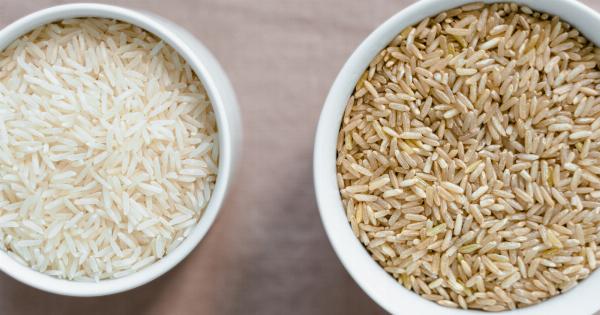Crohn’s disease is a chronic inflammatory bowel disease that affects the digestive tract. It causes inflammation and irritation in the lining of the digestive tract, leading to a variety of uncomfortable symptoms.
Crohn’s disease can affect any part of the digestive tract, from the mouth to the anus, but it most commonly affects the small intestine and the beginning of the large intestine.
Symptoms of Crohn’s Disease
The symptoms of Crohn’s disease can vary from person to person and can range from mild to severe. Common symptoms include:.
- Abdominal pain and cramping
- Diarrhea
- Bloody stools
- Fever
- Fatigue
- Loss of appetite
- Weight loss
- Nausea and vomiting
- Anemia
- Skin disorders
If you experience any of these symptoms, it is important to visit a healthcare professional for an accurate diagnosis and appropriate treatment.
Treatment Options for Crohn’s Disease
1. Medications
Medications are often the first line of treatment for Crohn’s disease. The goals of medication treatment are to reduce inflammation, control symptoms, and prevent flare-ups. Common medications used to treat Crohn’s disease include:.
- Anti-inflammatory drugs: These drugs, such as mesalamine and corticosteroids, help reduce inflammation in the digestive tract.
- Immunosuppressants: These drugs, including azathioprine and methotrexate, work by suppressing the body’s immune response to reduce inflammation.
- Biologic therapies: Biologic drugs, such as infliximab and adalimumab, target specific proteins in the immune system to reduce inflammation.
- Antibiotics: Antibiotics may be prescribed to treat bacterial infections that can occur in individuals with Crohn’s disease.
It is important to note that different medications may work differently for each individual, and it may take time to find the most effective treatment plan.
2. Dietary Changes
Dietary changes can play a significant role in managing Crohn’s disease symptoms. While there is no specific diet that works for everyone, certain dietary changes may help alleviate symptoms and reduce inflammation:.
- Avoiding trigger foods: Identify and avoid foods that seem to worsen your symptoms. Common trigger foods include spicy foods, high-fiber foods, dairy products, and caffeine.
- Eating smaller, frequent meals: Consuming smaller, more frequent meals can help reduce the burden on the digestive system and ease symptoms.
- Including probiotics: Probiotics, found in certain foods or as supplements, can help restore the balance of bacteria in the gut and promote better digestion.
- Staying hydrated: Drinking plenty of fluids, especially water, can help prevent dehydration caused by diarrhea and promote healthy bowel movements.
Discussing dietary changes with a healthcare professional or a registered dietitian who specializes in inflammatory bowel diseases can provide personalized recommendations based on your specific needs.
3. Lifestyle Modifications
Certain lifestyle modifications can also help manage Crohn’s disease symptoms and improve overall well-being:.
- Stress management: Stress and anxiety can trigger flare-ups in some individuals. Finding stress-management techniques that work for you, such as yoga, meditation, or counseling, may help reduce symptoms.
- Regular exercise: Engaging in regular physical activity can help improve digestion, reduce inflammation, and boost overall mood and well-being.
- Quitting smoking: Smoking has been linked to worsening symptoms and increasing the risk of complications in people with Crohn’s disease. Quitting smoking can significantly improve symptoms and overall health.
Discuss any lifestyle modifications with your healthcare professional to ensure they are appropriate for your specific situation.
4. Surgery
In some cases, medication, dietary changes, and lifestyle modifications may not be enough to manage symptoms, and surgery may be required.
Surgery for Crohn’s disease often involves removing the affected portion of the digestive tract and reconnecting the healthy sections. Surgery aims to relieve symptoms, correct complications, and improve overall quality of life.
5. Complementary and Alternative Therapies
In addition to conventional treatment options, some individuals with Crohn’s disease find relief in complementary and alternative therapies. These therapies may include:.
- Acupuncture
- Herbal remedies
- Probiotic supplements
- Mind-body therapies, such as hypnosis and relaxation techniques
It is important to consult with a healthcare professional before incorporating any complementary or alternative therapies into your treatment plan to ensure they are safe and effective.
Conclusion
Crohn’s disease is a chronic condition that requires ongoing management.
While there is no cure for Crohn’s disease, various treatment options, such as medications, dietary changes, lifestyle modifications, surgery, and complementary and alternative therapies, can help relieve symptoms, reduce inflammation, and improve overall quality of life. Working closely with healthcare professionals and following a personalized treatment plan can help individuals with Crohn’s disease effectively manage their condition.

























